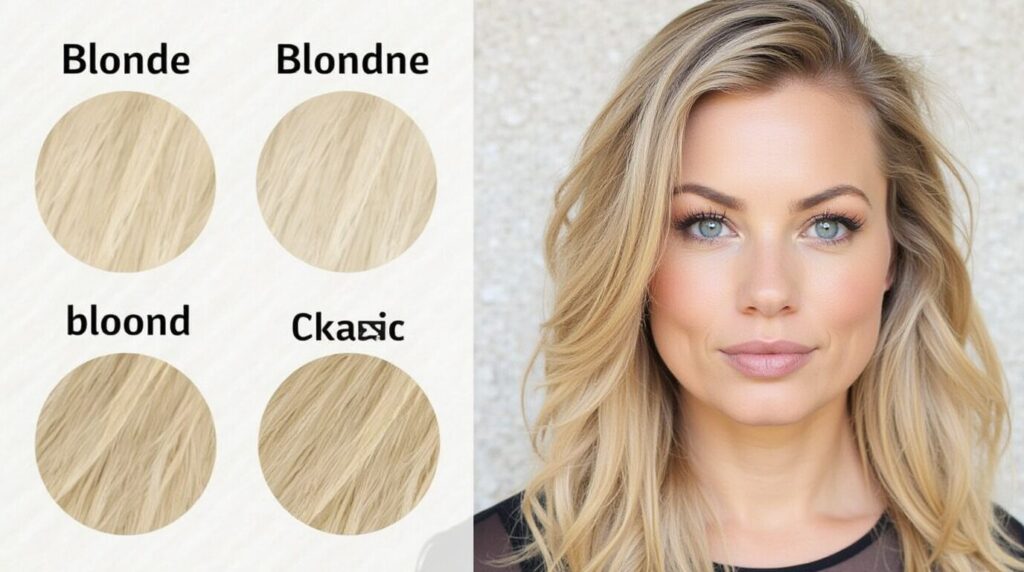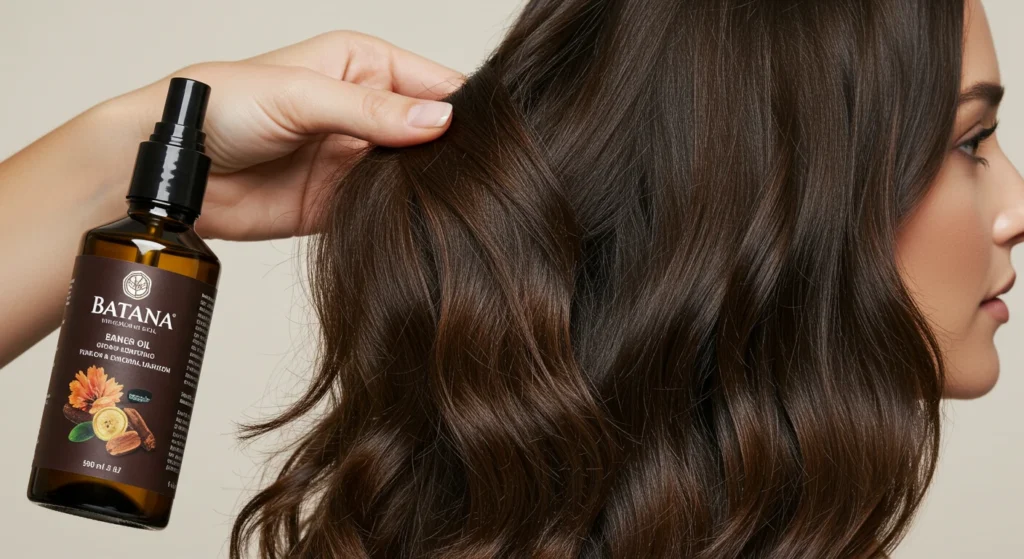Exploring the world of natural black hair 4C can be a journey. Your hair may feel like a mystery at times. It’s a texture rich in history, culture, and individuality.
By caring for your hair, you honor its roots and uniqueness. This journey is about understanding how to nurture each coil, curl, and kink. It’s about creating a routine that celebrates and promotes your hair’s growth.

Table of Contents
Understanding 4C Hair Texture
Understanding 4C hair means knowing its special needs. It has tight curls and kinks that look beautiful but can be dry and break easily. Because of its dense structure, it’s more prone to damage without the right care.
4C hair often looks shorter than it is because of its tight curls and shrinkage. Knowing how to care for it is key. Without enough moisture and nutrients, your hair might become brittle.
By focusing on your 4C hair’s unique needs, you can create a care routine that keeps it healthy and vibrant. Learning about 4C hair helps you enjoy its beauty and avoid common problems.

Essential Moisture for 4C Hair
Keeping 4C hair healthy needs the right amount of moisture. Knowing how important hydration is can really help your hair. 4C hair needs moisture all the time to avoid dryness and breakage.
This can cause damage over time. So, using good moisturizing methods is key.
Importance of Hydration
Moisture is super important for 4C hair. It makes hair less brittle, improves curl definition, and makes it easier to manage. Moisturizing regularly helps stop split ends and breakage.
Using natural oils and water-based products keeps your hair healthy and strong.
Best Moisturizing Techniques
Using the right moisturizing methods can change your hair care. The LOC method (Liquid, Oil, Cream) is great for keeping moisture in. Here’s how to do it:
- Liquid: Begin with a water-based moisturizer to hydrate your hair.
- Oil: Use a light oil to seal in moisture and prevent loss.
- Cream: End with a creamy product for extra moisture and control.
Adding these methods to your hair care can highlight hydration’s role in healthy 4C hair. Remember, regular care and moisture keep your hair lively and strong.
Best Products for 4C Hair
Finding the right products for 4C hair is key to keeping it healthy and hydrated. Good moisturizers and creams add much-needed moisture. This helps prevent dryness and breakage. Try adding some top picks to your hair care routine.
Top Moisturizers and Creams
Some moisturizers and creams really work well for 4C hair. Look for:
- Shea Moisture Curl Enhancing Smoothie – A rich cream that boosts curls and adds deep moisture.
- Cantu Shea Butter Leave-In Conditioning Repair Cream – Fixes dry, damaged hair with shea butter.
- Mielle Organics Pomegranate & Honey Moisturizer – Great for thick, curly hair, it adds hydration and shine.
Recommended Oils for Nutrient-Rich Care
Adding oils to your hair care can really help your 4C hair. These oils go deep, giving your hair the nutrients it needs:
- Jamaican Black Castor Oil – Helps hair grow and moisturizes the scalp.
- Olive Oil – Gives hair a natural shine and seals in moisture.
- Coconut Oil – Deep conditions, reducing protein loss.
Healthy Hair Care for 4C Textures
Creating a daily hair care routine is key for 4c textures. It helps keep your hair healthy and prevents damage. Focus on washing, conditioning, and styling to keep your hair hydrated and vibrant.
Daily Hair Care Routine
Start your day with a sulfate-free shampoo for 4C hair. This gentle method keeps your hair’s natural oils. Then, use a nourishing conditioner to lock in moisture.
- Use a leave-in conditioner for extra hydration.
- Apply a light oil like jojoba or argan to seal moisture.
- Style your hair with products that enhance your natural texture and avoid heat.
Deep Conditioning Methods
Deep conditioning is crucial for 4C hair health. Try the baggy method or a heat cap for better moisture. Deep condition every two weeks, or more if needed.
- The baggy method uses a lot of conditioner and a plastic cap overnight.
- A heat cap during deep conditioning opens hair cuticles for deeper product absorption.
Detangling 4C Hair Effectively
Learning the right way to detangle 4C hair can change your hair care routine. It keeps your hair strong and healthy. Using the correct tools and methods helps a lot in reducing breakage. Here are some tips to make detangling easier.
Tools to Use for Detangling
Choosing the right tools is key for detangling 4C hair. Here are some options:
- Wide-tooth combs: These combs move through curls without pulling or snagging.
- Detangling brushes: Made for curly hair, they gently detangle while protecting your hair.
- Fingers: Sometimes, using your fingers is the softest way to handle knots and tangles.
Best Practices for Reducing Breakage
Using effective practices helps in detangling 4C hair healthily. Follow these tips:
- Detangle when your hair is damp or wet with a moisturizing spray. This keeps your hair hydrated and makes detangling easier.
- Apply leave-in conditioners to add slip. This makes detangling easier and prevents breakage.
- Begin detangling from the ends and work your way up. This reduces tension on the roots.
Protective Styles for 4C Hair
Choosing the right protective styles is key for 4C hair health. Styles like braids, twists, and buns reduce hair manipulation and keep moisture in. They protect your hair from daily damage, as advised by experts.
Protective styles shield your hair’s delicate ends from harm. By hiding your ends, your hair can grow better. This method also cuts down on styling damage.
These styles also make hair care easier. Braids and twists can last for weeks. This means less styling and less heat use, helping your hair grow longer and stronger.
Adding protective styles to your routine is crucial. Each style has special benefits for 4C hair, improving both looks and health. These styles help your hair stay strong, hydrated, and healthy.
Styling Tips for 4C Hair
Embracing your natural 4C hair can be rewarding. Knowing how to style it without damage is key. The right techniques and styles keep your hair healthy and vibrant. Here are some tips that blend creativity with care for the best styles for 4C hair.
Best Styles for Minimal Damage
For stunning looks without harming your hair, try these styles:
- Low-manipulation styles, like twists or braids, reduce daily stress on your strands.
- Protective hairstyles, such as updos or buns, shield your hair ends from friction and environmental factors.
- Wash and go styles show off your natural texture while keeping styling simple.
- Flat twists offer a stylish look and a way to stretch your hair without heat.
Using Heat Wisely
Using heat on 4C hair needs careful thought. It’s vital to minimize damage while getting the styles you want. Remember these tips:
- Invest in a quality heat protectant to guard against thermal injury.
- Use styling tools with adjustable temperature settings, like a good flat iron or curling wand.
- Keep heat settings low, preferably below 350°F, to prevent excessive heat exposure.
- Consider alternative styling methods, such as flexi rods, for curl definition without heat.
Managing 4C Hair in Different Weather Conditions
Knowing how weather affects 4C hair is key to good hair care. High humidity can cause frizz, making 4C hair hard to manage. On the other hand, cold weather can dry out your hair, leading to breakage.
- Use anti-humidity products to fight frizz from high humidity. Choose serums and sprays that keep moisture in and block extra air moisture.
- In cold weather, add a deep moisturizing routine to your hair care. Use thick leave-in conditioners and oils to keep moisture in and protect against cold air’s drying effects.
- Always wear a hat or scarf in harsh weather. This extra layer protects your hair from extreme temperatures and wind.
- Staying hydrated is important all year. Drinking plenty of water helps your body and hair.
By using these tips, you can manage 4C hair in all weather and keep it healthy all year.
Why Your Diet Matters for Healthy 4C Hair
Diet is key for healthy hair, especially for long 4c hair. Knowing which nutrients help your hair stay strong and vibrant is important. It guides your eating habits for better hair health.
Key Nutrients for Hair Health
Some vitamins and minerals are crucial for hair growth. Here are the main ones:
- Biotin: A vital B-vitamin that strengthens hair and promotes growth.
- Omega-3 Fatty Acids: These healthy fats nourish hair follicles and add shine.
- Protein: Hair is mostly protein, so you need enough to keep it strong.
- Zinc: It’s important for tissue growth and repair, helping hair follicles.
- Iron: It helps carry oxygen to hair roots, keeping them nourished.
Foods to Incorporate for Stronger Hair
Eating right for healthy hair is easy with the right foods. Try adding these to your diet:
- Salmon: It’s full of omega-3s, great for hair health.
- Eggs: They’re full of protein and biotin, supporting strong hair.
- Nuts and Seeds: Almonds, walnuts, and flaxseeds give you essential fatty acids and proteins.
- Leafy Greens: Spinach and kale have iron and vitamins A and C, good for the scalp.
- Berries: They’re full of antioxidants and vitamin C, helping with collagen.
How to Grow Long 4C Hair
Growing long 4C hair needs a careful plan. It’s all about good scalp care for healthy hair. A clean scalp is key for hair growth, as it helps hair follicles thrive. You can start a scalp care routine to boost your hair growth.
Maintaining a Scalp Care Routine
Begin by washing your scalp with a gentle shampoo made for natural hair. This removes dirt and buildup. Using natural oils like tea tree oil can greatly improve scalp health. Tea tree oil clears pores, making it easier for hair to grow.
Also, scalp massages a few times a week help. They improve blood flow, which aids in hair growth.
Dealing with Common Hair Issues
Handling split ends and dryness is crucial for growing long 4C hair. Regular trims prevent split ends from moving up. Keeping your hair moisturized is also key.
Choose products with shea butter or aloe vera for hydration. A consistent scalp care routine leads to healthy, long hair.
Natural Black Hair 4C Maintenance Tips
Caring for natural black hair 4C needs regular effort and knowing what your hair needs. It’s important to know how often to wash your hair and to have a good nighttime routine. These steps help keep your hair healthy, moisturized, and strong.
Frequency of Washes
How often you wash your hair depends on your scalp’s oiliness and how active you are. Here are some tips:
- Wash once a week if you have a dry scalp.
- Wash twice a week if you’re active or have an oily scalp.
- Always use a deep conditioner after washing to add back moisture.
Importance of Nighttime Care
What you do at night affects your hair’s health. Protecting your hair while you sleep helps prevent breakage and keeps moisture in. Here are some tips for nighttime care:
- Wear a satin or silk bonnet to keep moisture in and reduce frizz.
- Try braiding or a loose bun to avoid tangles.
- Apply a light oil or moisturizer before bed to lock in moisture.
Using Supplements and Vitamins for Hair Health
Caring for your 4C hair is not just about what you put on it. It’s also about what you put in your body. Adding supplements to your routine can greatly improve your hair’s health. Important amino acids, collagen, and beauty vitamins help your hair grow stronger and longer.
Vitamins like biotin and vitamin D make your hair more resilient and encourage new growth. Studies show these nutrients are good for hair follicles, making your hair stronger and healthier. When picking supplements, choose brands known for hair care. Consistency is important for seeing improvements.
Look for supplements with zinc, vitamin E, and omega-3 fatty acids. These nutrients give your hair the building blocks it needs for growth. A mix of supplements and a healthy diet full of nutrients can greatly improve your 4C hair.
Conclusion
Keeping your natural black hair 4C healthy takes commitment. You need to stay consistent with hair care, like keeping it hydrated and using the right products. Also, choose styling methods that are gentle on your hair.
Using the best moisturizers and quality products is crucial. Protecting your hair from damage caused by the environment is also important. Every hair is different, so finding what works for you is key. Start your journey to beautiful, healthy hair with small steps.
Now, you have the knowledge to make a hair care plan that works for you. Be patient, make changes as needed, and watch how your hair responds. This will help you achieve the strong, nourished 4C hair you want.
FAQ
What is the best way to moisturize 4C hair?
To moisturize 4C hair, use the LOC method. Start with a hydrating leave-in conditioner. Then, apply a good-quality oil like Jamaican black castor oil or olive oil. Finish with a creamy moisturizer to seal in moisture. Regular moisturizing prevents dryness and promotes healthy hair.
What are the top products for 4C hair?
Top products for 4C hair include Shea Moisture’s Curl Enhancing Smoothie and Cantu’s Leave-In Conditioning Repair Cream. Also, the Mielle Organics Pomegranate & Honey Moisturizing Shampoo is great. These products hydrate and meet the unique needs of 4C hair.
How often should I wash my 4C hair?
Wash your 4C hair every 1-2 weeks. Washing too often can strip it of natural oils, causing dryness.
What protective styles work best for 4C hair?
Twists, braids, and buns are best for 4C hair. They keep moisture in and reduce hair manipulation. Keeping these styles long helps hair grow and protects it from damage.
How can I effectively detangle my 4C hair?
Start detangling with a moisturizing spray or leave-in conditioner. Use a wide-tooth comb or detangling brush, starting from the ends. This reduces breakage and promotes growth.
What are the best styling tips for 4C hair?
Choose low-manipulation styles like updos or chunky twists. If using heat, use a protectant and keep the temperature low to avoid damage.
How can I manage 4C hair in humid weather?
Use anti-frizz products and stay hydrated in humid weather. Gels or creams for humidity control can help keep your style frizz-free.
What nutrients are essential for healthy 4C hair growth?
Biotin, omega-3 fatty acids, protein, and vitamins A, C, and E are key. Eating foods like leafy greens, nuts, fish, and eggs can nourish your hair.
What should I do at night to care for my 4C hair?
At night, wear a satin or silk bonnet or scarf. This reduces friction and keeps moisture in, preventing breakage and maintaining hair health.
How can I promote hair growth for my 4C hair?
For hair growth, keep your scalp clean and massage it. Use nourishing oils like tea tree or peppermint. Regular trims and a consistent hair care routine also help.





